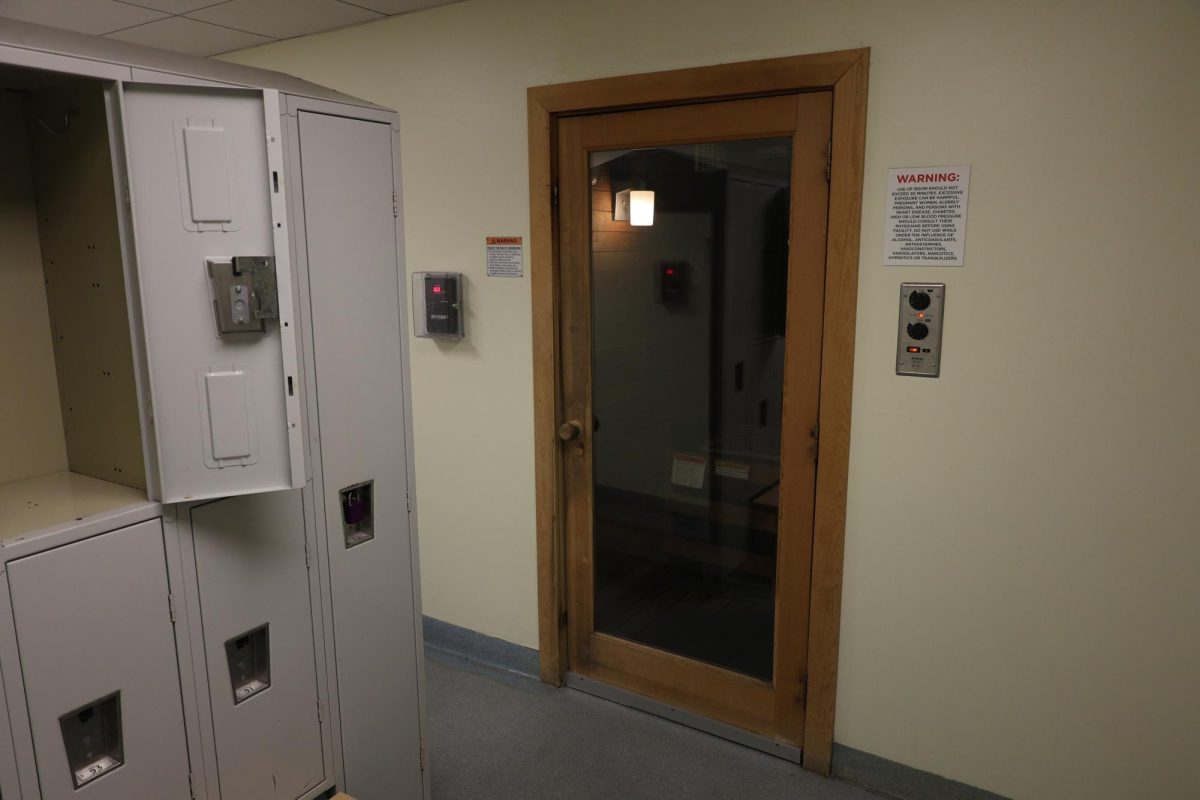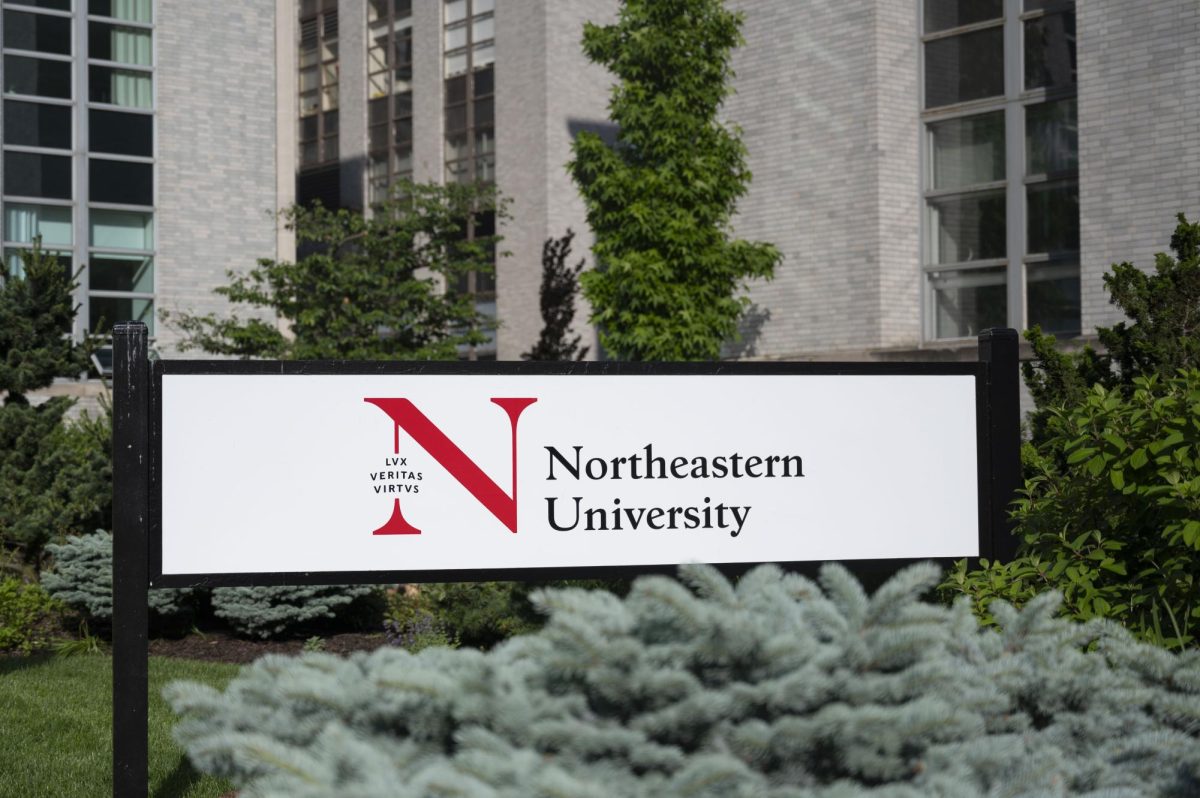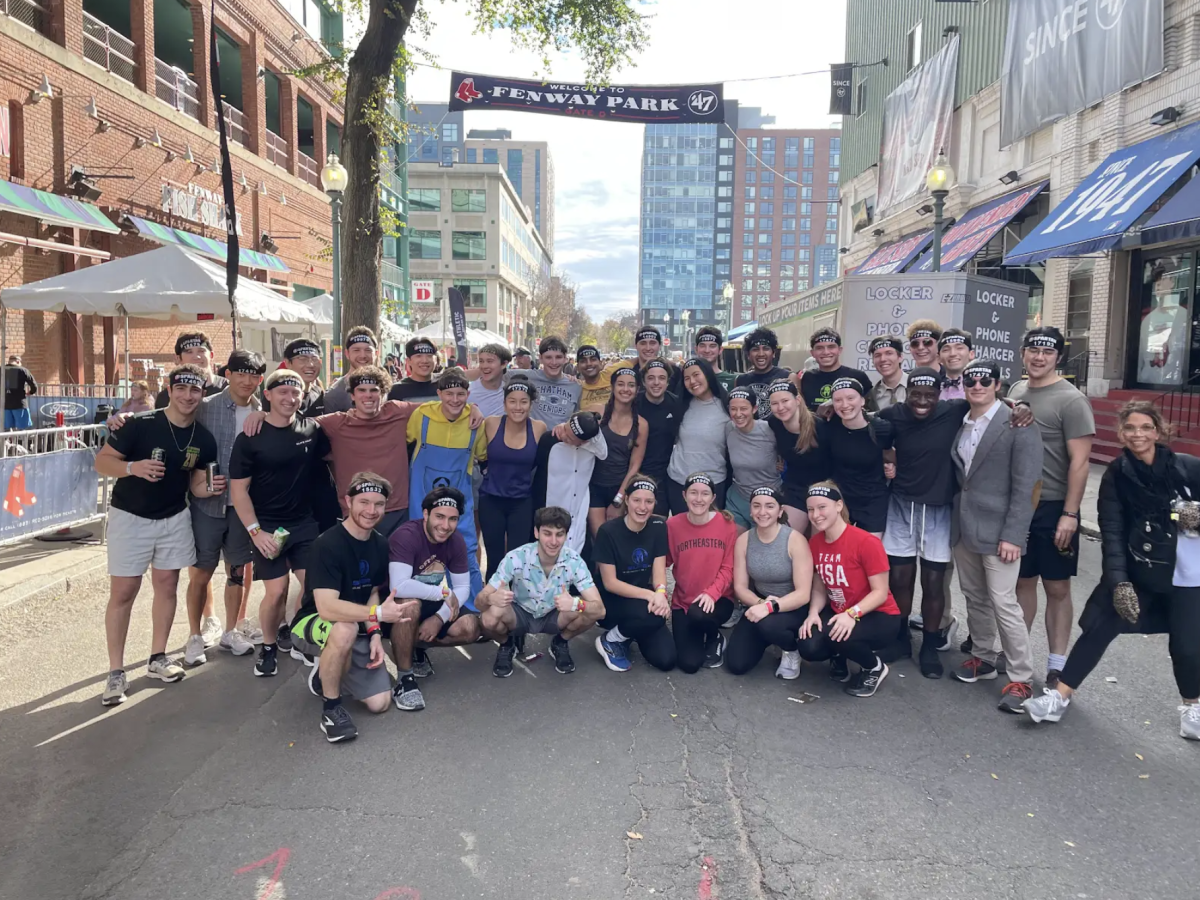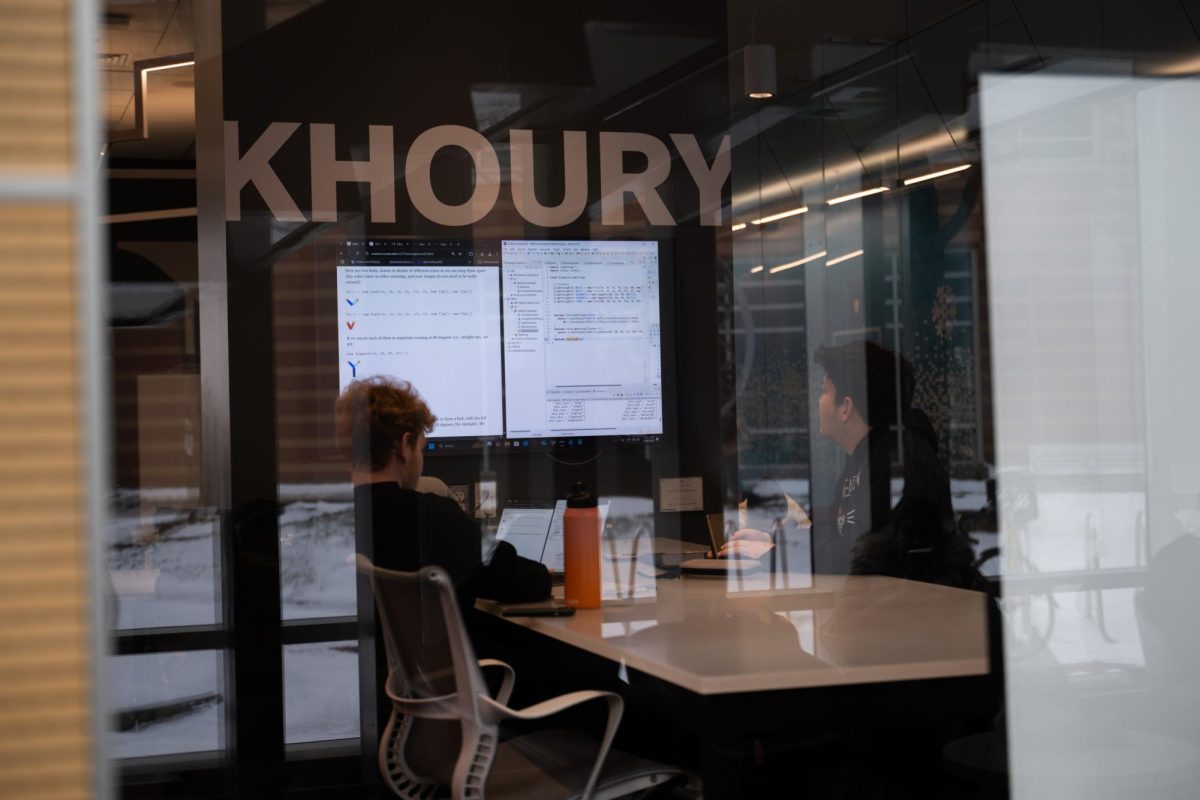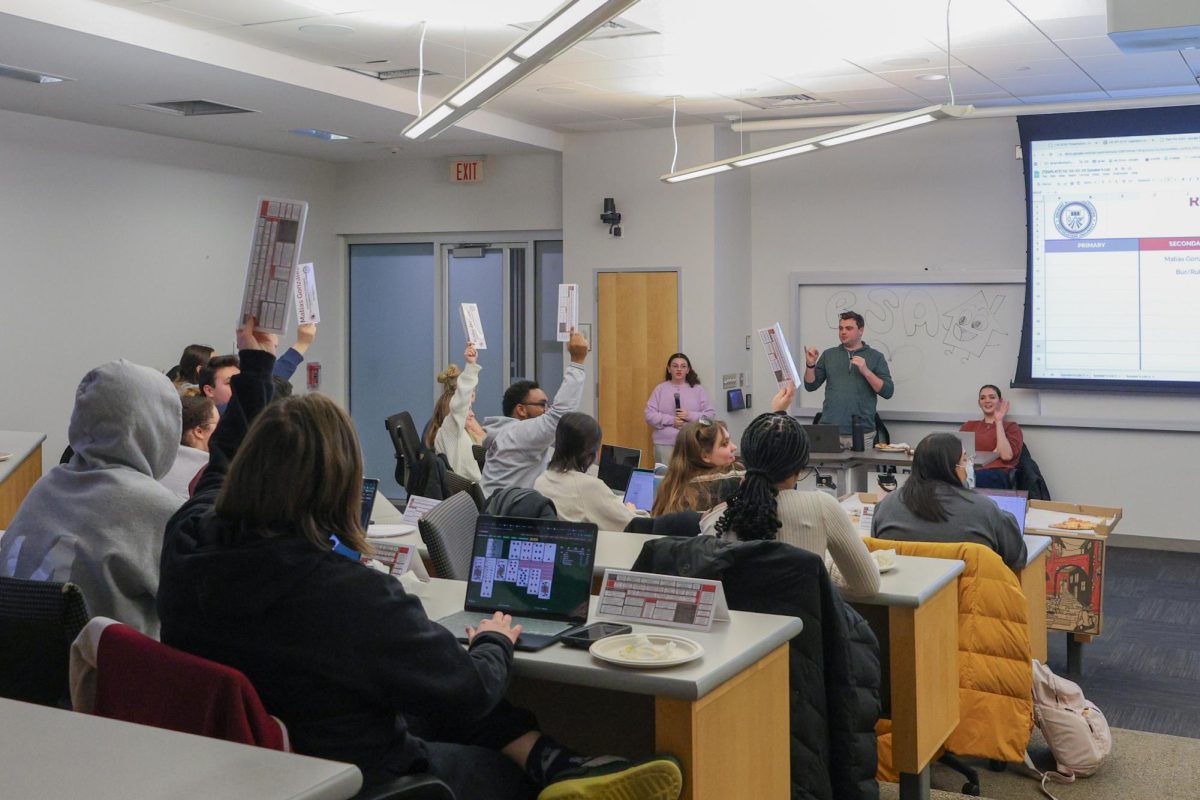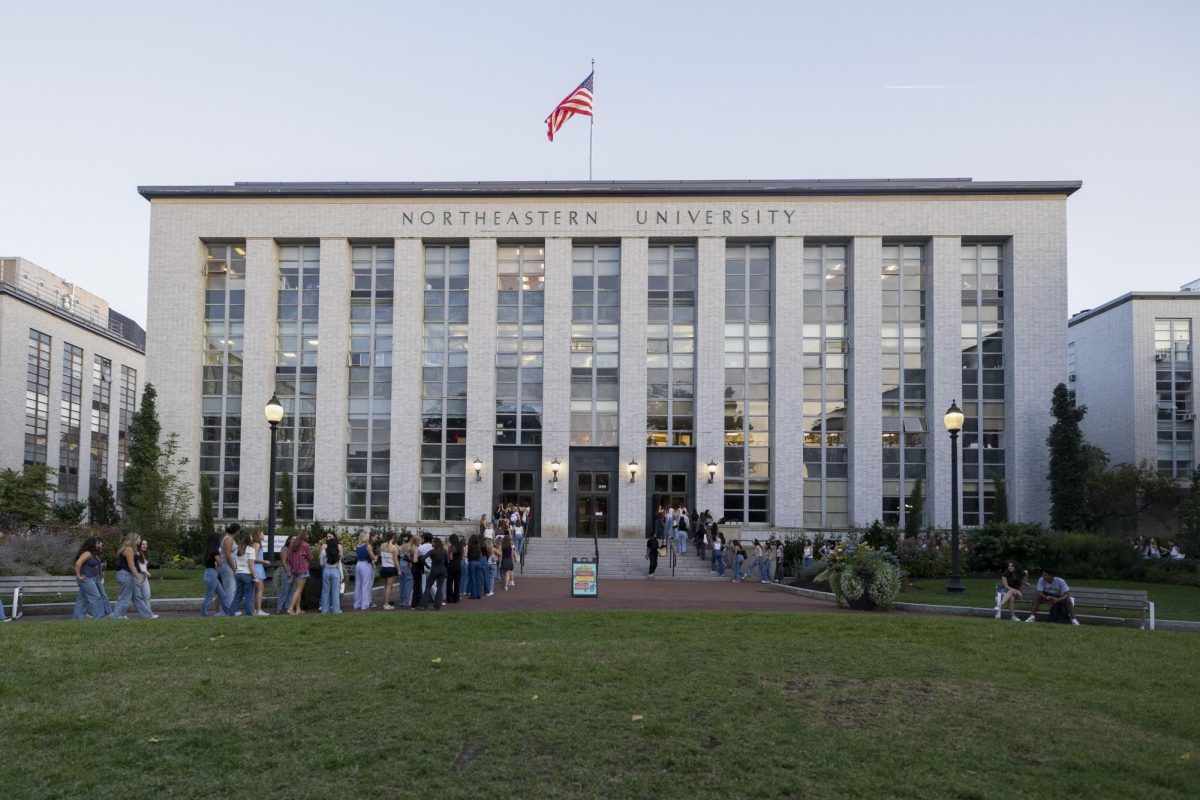
By Taylor Dobbs, News Staff
Almost 800 students were forced out of their housing Tuesday night when power outages fell over Back Bay and left buildings on St. Stephen Street, Hemenway Street and Huntington Avenue without power.
The university advised students to find a friend or fellow student in another building to stay with, but offered accommodations in the Cabot Center for displaced students as well.
Maeve Hannon, a sophomore international business major, stayed in the Cabot Center Tuesday night after she was evacuated from 110 St. Stephen St. and said she was impressed with the university’s fast response to the situation.
“I thought the whole thing was really well done because they must have thrown those cots together in literally half an hour,” Hannon said.
Hannon, said she received a toothbrush, toothpaste, soap and bedding for the night.
Displaced students were allowed free entry to the Levine Marketplace dining hall in Stetson East until midnight both nights. This allowed students who normally cook in kitchens in their residence halls to have meals.
Created with flickr slideshow.
The outages, which started shortly before 8 p.m. Tuesday, were the result of a transformer fire at an NStar substation on Scotia Street, between the Prudential Center and Massachusetts Avenue. Werner Schweiger, the senior vice president of NStar, said at a Wednesday morning press conference:
“Inside each of these stations, there’s two power transformers. In Scotia Street, one of them has been damaged, we think beyond repair,” he said. “The other one is the one we’re focused on right now to get back in service so that we can restore the normal supply to this area.”
Most of campus remained lit during the outages because it receives power from a Mission Hill substation that remained online throughout the episode. The affected buildings which normally receive power from the Scotia Street substation, are isolated to the northern edge of campus.
University Director of Marketing and Communications Renata Nyul said setting up beds in the Cabot Center is part of Northeastern’s Emergency Preparedness Plan, and opening the dining hall to displaced students was an offer of “comfort and convenience.”
“The students who have been displaced, their lives have been disrupted enough that for us to provide a place for them where they can get a meal is a really helpful thing in a time like this,” Nyul said.
At 4:30 p.m. Wednesday, the university sent an email to students over its emergency alert system stating that the same buildings would remain closed for another night.
“At this point, the only thing we were told is that the issues probably won’t be resolved before tomorrow,” Nyul said in an interview shortly after the email was sent.
Despite the inconvenience, Hannon said she was impressed with the university’s communication throughout the episode.
Vice President for Student Affairs Laura Wankel went to Cabot Wednesday morning to check on students and answer any questions they had. She informed almost 40 students that they would be allowed into their buildings briefly to retrieve some possessions, Hannon said. Wankel said she was happy to have some of her things back, but that the outage had served as a reminder of how important her housing was.
“You don’t realize how much you don’t have with you until you can’t have access to it,” Hannon said.
Correction: An earlier version of this story misstated the cause of the outage as a fire at TC’s Lounge. That fire was unrelated to the outage, officials said.



